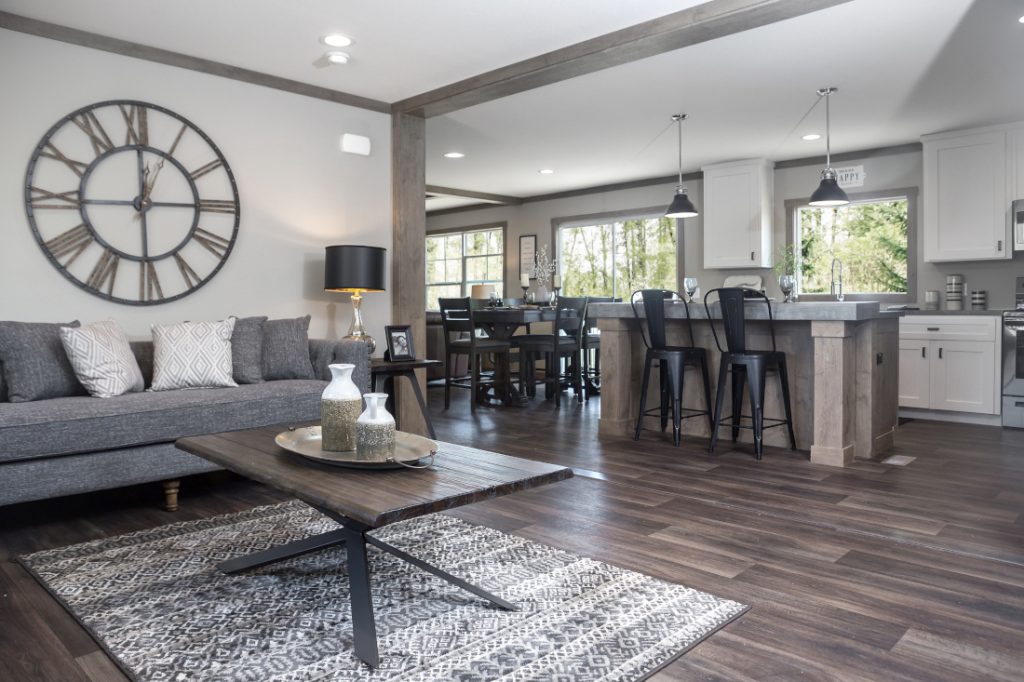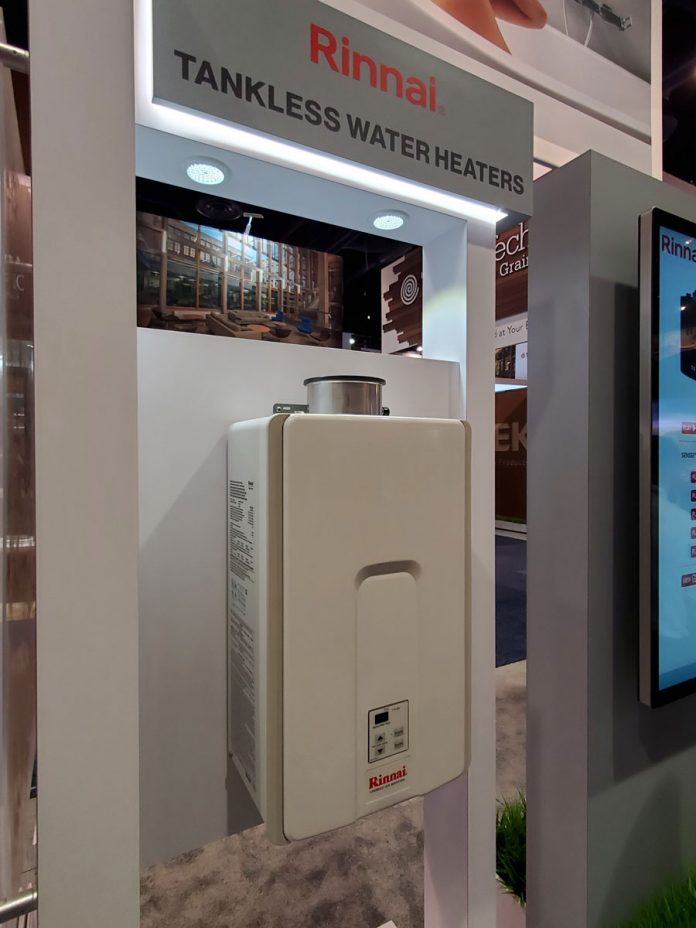A century ago, advertisements in magazines and newspapers implored homeowners to install the latest and greatest appliance: gas-powered water heaters.
One ad says a gas water heater “stops ALL waiting and fussing when you want HOT WATER.” Another declares: “Just turn the faucet and enjoy an inexhaustible supply of hot water.”
No coal, ashes, or dust with these modern marvels. Hot water on demand without compromise — what will engineers think of next?
It turns out the answer is, “Something even better.”
A Tankless Task
Technology marches on in every industry, including the home appliance industry.
Leading that march? Georgia-based Rinnai Corporation, manufacturer of the number-one selling brand of tankless gas water heaters in the United States and Canada.
Founded 100 years ago, Rinnai’s leadership lineage reaches back to the debut of gas-powered water heaters. The company’s role in producing tankless water heaters stretches back nearly as far. In 1921, Rinnai & Co launched their first tankless water heater product.
To put that in perspective, World War I had ended just three years prior.
The quality and reliability of their tankless water heater products assured Rinnai’s leadership in the field from that point on. It’s a position the company retains to this day.
Water Heaters Get Smart
When it comes to today’s homes, “smart” is in.
Programmable thermostats started the trend. But now there are smart light bulbs, smart window shades, even smart toilets. It only makes sense, then, that something as essential to comfort as water heaters join the club.
Rinnai offers tankless water heaters with both Amazon Alexa and Google Home support. As a result, water heater control is as easy as saying, “Alexa, tell Rinnai I want to take a shower,” or “OK Google, tell Rinnai I need hot water.”
Rinnai also provides a mobile app for both iOS and Android devices that allows for even greater control, including built-in schedules for multiple on/off recirculation periods throughout the day and a vacation mode users can activate remotely.
“Tankless is what we’re known for, and we’re continuing to drive changes, making installation easier and creating these user interfaces for a product that’s not really known for that,” said David Federico, brand director for Rinnai America. “We’ve taken that to the next level for control with an app… for instance, when your kid is showering you can set the water at 97 degrees, and when you need to wash dishes you bring it up to 120 degrees.”
The interface also provides error alerts for plumbing problems that otherwise may go undetected for long periods of time, Federico said.
Consumer spending on smart home systems tops $100 billion, so it’s a strong market for the company. As for what the future holds …
The Next Hundred Years
Rinnai’s plans for the future include continuing to offer homeowners with solutions that promote comfort and health. They anticipate achieving that through technologies that continue to emerge and evolve.
If the past is any indication, homeowners will one day look back on this period with the same nostalgia that arises from reading yesteryear’s ads touting the amazing properties of gas water heaters. Maybe something like, “Can you believe there was a time when you couldn’t talk to your house and have it turn on the shower for you?”
Rinnai and Manufactured Homes

Tankless Heaters Considered for New HUD Code
For some, technology can move too fast.
That’s the case when it comes to mobile home manufacturing and tankless water heaters, such as those provided by Rinnai.
The reason: many manufactured housing professionals see the rules laid out by the U.S. Department of Housing and Urban Development (HUD) as antiquated in the era of tankless water heaters, smart home technology, and other advancements in home manufacturing.
The result is that while tankless water heaters can be installed in manufactured homes, HUD-approved installation is limited to aftermarket providers. Such a guideline prevents a new home from all of the latest options available.
Fortunately, HUD is aware of the issue and is working to revise the HUD code to include provisions for new technologies.










